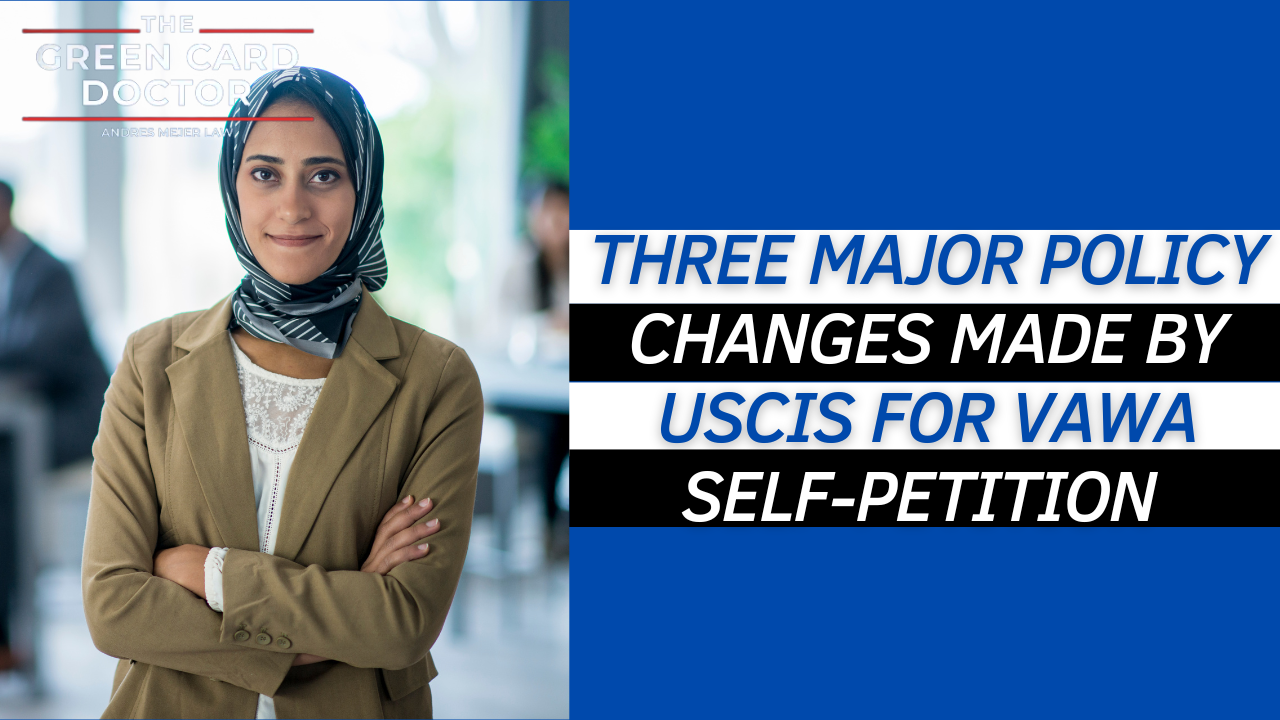Do you intend to self-petition for VAWA immigration status? If so, good news!
The USCIS adopted three major policy adjustments to make this legal remedy more accessible to you.
DISCUSSION
Over time, the United States government has intensified its efforts to safeguard victims of abuse by refining existing regulations and restructuring them to make them more accessible to victims.
On February 10, 2022, USCIS issued various VAWA self-petition policy revisions that would significantly influence victims’ access to such a legal remedy.
FORTUNATELY, this has expanded self-petitioning for VAWA immigration status.
IF you want to self-petition for VAWA immigration status, it is vital to know the modifications made by the USCIS.
But, before we get there, let us first define… What is VAWA?
VAWA, also known as the Violence Against Women Act of 1994, was enacted to allow non-US citizens or immigrants who are victims of abuse or battery to file for lawful status without the abuser’s assistance.
The legislation allows victims to be self-sufficient and escape their grave circumstances by offering them a work permit, the right to certain federal and state public benefits, and the opportunity to get a green card.
Now… What are the three modifications USCIS made on VAWA self-petitions?
Policy Change #1: Divorce does not preclude a stepchild or stepparent from being eligible for VAWA self-petition.
In the case of Arguijo v. USCIS, the U.S. Court of Appeals for the Seventh Circuit ruled that a divorce does not terminate the relationship between a stepparent and a stepchild. Thus, they are still eligible for a VAWA self-petition.
This means that if a parent-stepparent marriage ends in divorce, a stepchild or a stepparent remains eligible for the VAWA self-petition – as long as they meet other eligibility requirements.
For example, the stepchild must not have reached 18 years old at the time of the parent’s marriage – which created the step relationship.
Policy Change #2: Proving a connection between the abuse suffered and criminal conviction, if any, can help establish the good moral character requirements.
One of the primary requirements for a VAWA petition is that the petitioner is of good moral character. This means that you can be barred if you are convicted of any crime within a 3-year period before filing your VAWA petition.
However, an exemption may apply if the petitioner can prove that the criminal conviction is “connected to” the battery or abuse that they suffered.
Before, this would only apply if the petitioner was “compelled or coerced” to commit the act or crime.
HOWEVER, with this policy change, establishing that the conviction has “a causal or logical relationship” to the battery or abuse can help the petition qualify for the exemption.
Policy Change #3: Proving the shared residency requirement has been expanded to consider more situations.
Among the requirements for VAWA applications is proving that you shared a residence or a home during the marriage with your spouse or during the qualifying relationship (such as a parent-child relationship).
NOW… USCIS updated its interpretation to also consider the case if the petitioner can demonstrate that they are residing or have resided with the abuser at any time in the past.
This also means that the self-petitioner is not required to have resided with the abuser during the qualifying relationship.
Moreover, the USCIS also gave more consideration by not requiring that the shared residency occurred within the United States only. This allowed previously shared residency that happened outside the country to also be considered.
For example, IF you and your spouse lived together in another country before getting married, but were not able to live together after your marriage for some reason, you would still be allowed to file for a VAWA petition.
Call us today or schedule a free consultation for expert legal advice if you need more information on your case or if you need any help in your immigration journey.




